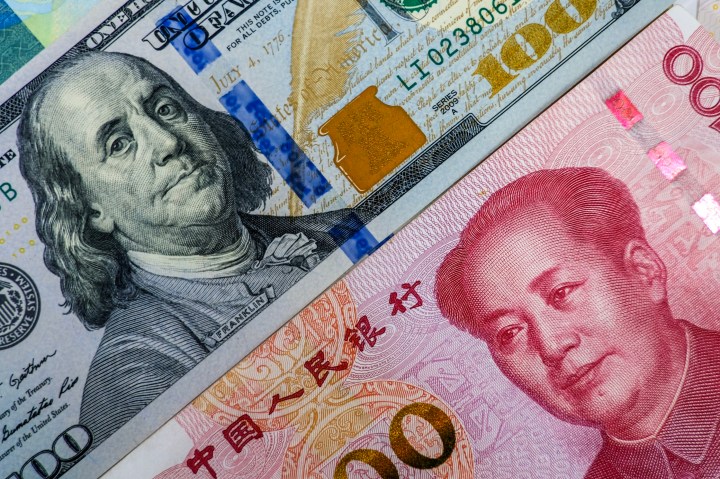
How do multinational companies figure out how to report their earnings?
Share Now on:
How do multinational companies figure out how to report their earnings?

This is just one of the stories from our “I’ve Always Wondered” series, where we tackle all of your questions about the world of business, no matter how big or small. Ever wondered if recycling is worth it? Or how store brands stack up against name brands? Check out more from the series here.
Jeff Beman asks:
How do multinational companies figure out their earnings and report them so simply every quarter? They must take into account several factors like having services or products sold across different currencies, changes in the exchange rates of various currencies or the variation in the rate of inflation that differs across countries.
For multinational companies, there’s a lot to juggle when reporting earnings.
“A multinational company typically controls many subsidiaries,” said Siqi Li, an accounting professor at Santa Clara University’s Leavey School of Business. “For the purpose of financial reporting, we consolidate the statements across the different subsidiaries so that we get a big picture of what the parent company is doing as a whole.”
But as Beman pointed out, countries have different currencies and there are exchange rates to take into account.
Li said that when a company like Apple publishes financial results in its annual report, it will typically discuss the risks associated with exchange rate fluctuations.
“They will warn the investors that their financial performance will be subject to risks associated with changes in the value of U.S. dollars relative to, for example, Japanese yen or Chinese yuan,” Li said.
But this process is actually not supercomplicated. When they consolidate financial results, they will translate, for example, sales revenue back to U.S. dollars.
Some complications can arise, though, if two countries adhere to different accounting principles. More than 140 countries use International Financial Reporting Standards, unlike the United States, which uses Generally Accepted Accounting Principles.
For example, say you’re a company that buys steering wheels to make cars, and you’re trying to value your inventory. Now let’s say you don’t buy them all at once, instead buying some today and some tomorrow, Li explained.
If you sold only a certain amount, how do you determine the costs that you incurred? In the U.S., you could use LIFO, or last in, first out, in which the latest inventory is counted as the cost of the goods sold. Or, you could use FIFO, which means first in, first out. But those who follow international reporting standards can’t use LIFO. If prices are rising, the inventory you count as being sold will be valued higher, which could reduce your tax burden. The reason it’s banned is that it could be based on outdated inventory.
Despite the difference in standards, the parent company can consolidate everything and present the totals based on the rules of the country it’s located in.
There are tactics multinational corporations can use to their advantage because they have subsidiaries. For example, some of these companies will move ownership of their patents to a subsidiary in a country with lower taxes.
In that case, the parent company might have to pay royalties to the subsidiary to use that intellectual property. But by generating patent income overseas, the company’s overall tax bill could be reduced.
There’s a lot happening in the world. Through it all, Marketplace is here for you.
You rely on Marketplace to break down the world’s events and tell you how it affects you in a fact-based, approachable way. We rely on your financial support to keep making that possible.
Your donation today powers the independent journalism that you rely on. For just $5/month, you can help sustain Marketplace so we can keep reporting on the things that matter to you.


















